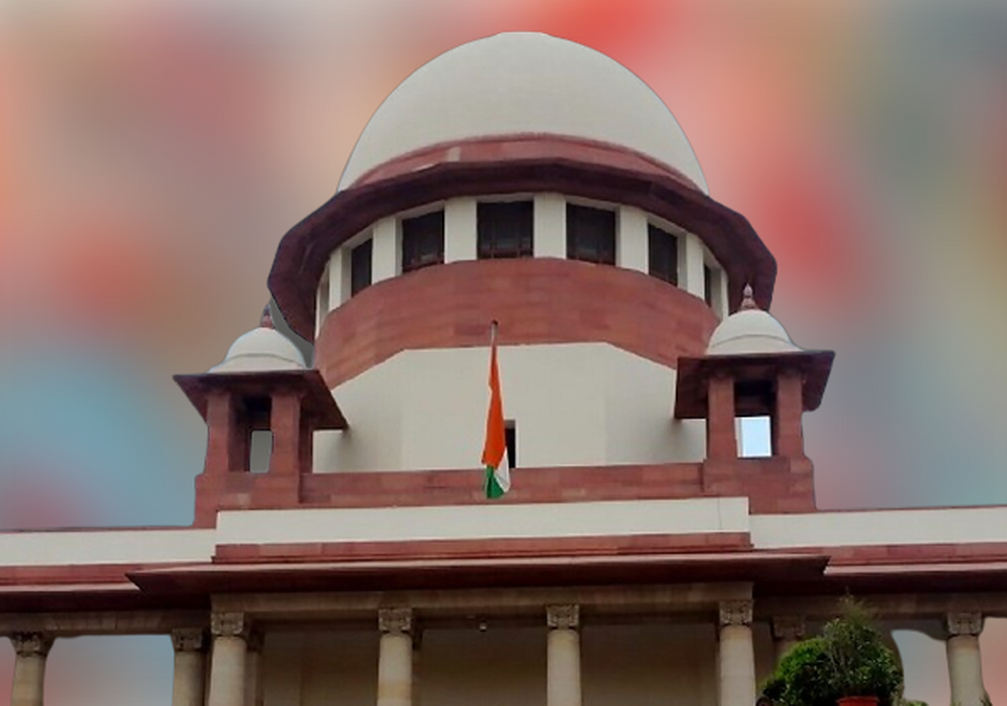Under Order XI Rule 5 CPC, Court can grant leave to plaintiff to file documents not filed with plaint: Delhi HC

Read Judgment: VALO AUTOMOTIVE PVT LTD v. SPRINT CARS PVT LTD & ORS
Tulip Kanth
New Delhi, August 23, 2021: The Delhi High Court has affirmed that under Order XI Rule 5 of the Code of Civil Procedure, 1908, the Court can grant leave to the plaintiff to file documents not filed with the plaint.
The Court’s decision came while granting an opportunity to the petitioner, Valo Automotive Pvt. Ltd., to file the amended plaint along with the documents and statement of truth before the Commercial Court.
Herein, the plaintiff had filed a petition under Article 227 of the Constitution, being aggrieved by the order of the District Judge, Commercial Court, whereby, its applications under Order VI Rule 17 and under Order VII Rule 14 of CPC for amendment of the plaint and for placing on record the additional documents, were dismissed.
The petitioner had filed a suit against Sprint Cars Pvt. Ltd., for the recovery of Rs 31,65,271/- along with the interest and had also placed certain documents and statement of accounts on record.
Later, an application under Order VI Rule 17 CPC was filed for amending the plaint and application under Order VII Rule 14 CPC was filed for bringing on record documents, further invoices, to substantiate the amendment sought, which was for enhancing the suit claim from Rs.31,65,271/- to Rs.39,03,396/-.
Afterwards, the Trial Court rejected the application for amendment observing that since the amendment would be resulting in allowing the claim, which was relinquished by the plaintiff at the time of filing of the suit, it could not be allowed. The application under Order VII Rule 14 CPC was also dismissed by the Trial Court taking a view that since the amendment was not allowed, these documents could not be filed by the plaintiff in view of the amended Order XI Rule 5 CPC, as the dispute was a commercial dispute.
A Bench of Justice Asha Menon was of the view that while there did not appear to be any denial that the parties were transacting with one another, the respondents denied the existence of invoices as also any liability to pay.
It was observed that when the application under Order VI Rule 17 CPC was filed specifically recording that it was after laboriously and meticulously going through the record, to answer the claim of the respondents that they have never raised any bills or invoices, that the documents could be traced, a sound explanation came forth.
Once the documents were traced and connected to the Ledger Account for various years, the petitioner sought to bring on record all those documents in support of the claim, which now had to be modified to include a further sum of Rs 7,38,125, added the Bench.
The Bench opined that Order VI Rule 17 CPC permits the Court to consider and allow amendments to pleadings for the purpose of determining the real question in controversy between the parties. Where the application is moved after the trial has commenced, even then the court may allow amendments, on being satisfied that the averments sought to be introduced by way of amendments were not included in the pleadings at the initial stage despite due diligence.
The Court explained that in this matter, not only has the trial yet to commence, the suit is at a very preliminary stage. The Commercial Court had granted to the petitioner an opportunity to file the replication and that is when the liberty to file documents and amendments were sought. The Court specifically mentioned that the amendment was not seeking to change the nature of the suit, which remains one for recovery.
“The petitioner/plaintiff cannot be denied an opportunity to meet the claim of the respondents/defendants raised in the written statement that there were no invoices or bills raised. In order to allow the court to determine fully the dispute between the parties, it is the considered view of this Court that the amendments are necessary,” stated the Bench.
Moreover, it was also observed that Order II Rule 2 CPC has no application at the stage of deciding an application under Order VI Rule 17 CPC to amend the plaint, unless it is to incorporate claims that could have been raised in an earlier suit. It cannot be used to deny correction of claims at the initial stage of the case, when pleadings have not been completed.
The Court also clarified that the Trial Court had referred to the provisions of Order XI Rule 5 CPC, as applicable to the commercial disputes but overlooked the provisions of Order XI Rule 1(1)(c)(ii) CPC, which permits the plaintiff to file documents in answer to the case set up by the defendant subsequent to the filing of the plaint.
“The precise case of the petitioner/plaintiff is that when the respondents denied that invoices were ever raised, the application was moved to bring the invoices on record. Under Order XI Rule 5 CPC, the court can grant leave to the plaintiff to file documents, not filed with the plaint. The Commercial Court erred in over-looking these provisions of the CPC,” found the High Court.
Thus, the Court allowed the allowed the Petition and set aside the impugned orders in question as being erroneous.
Sign up for our weekly newsletter to stay up to date on our product, events featured blog, special offer and all of the exciting things that take place here at Legitquest.




Add a Comment